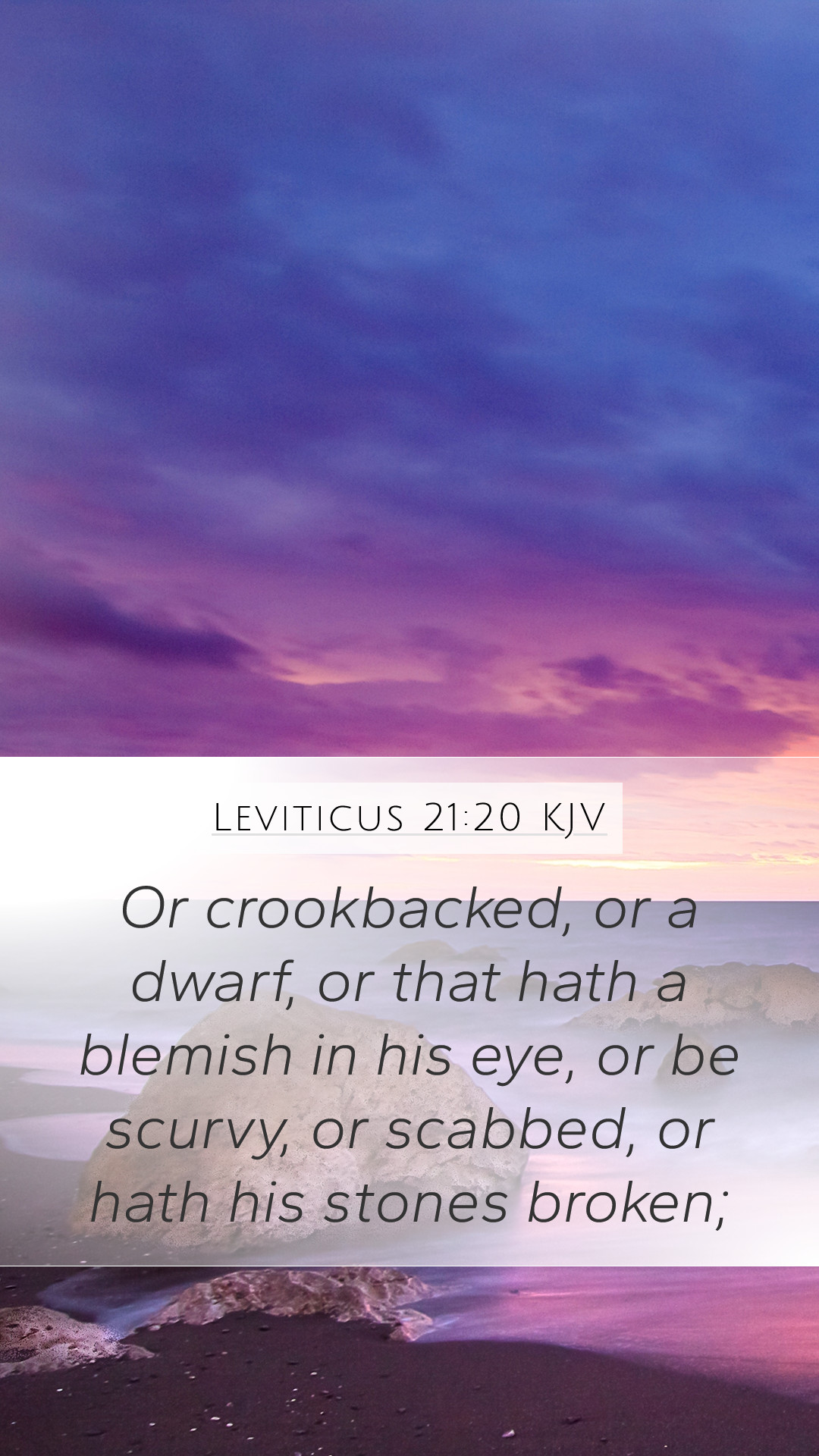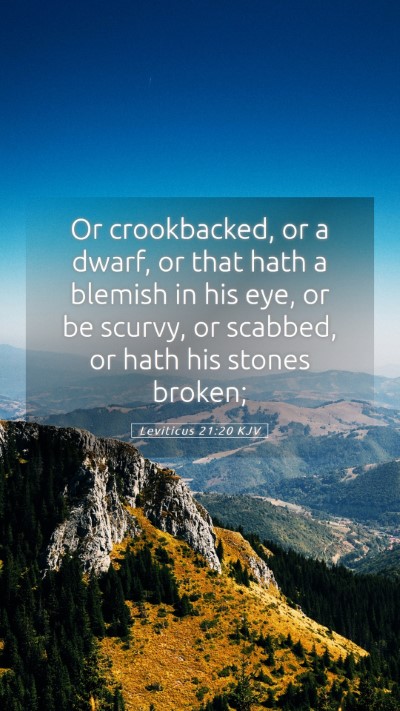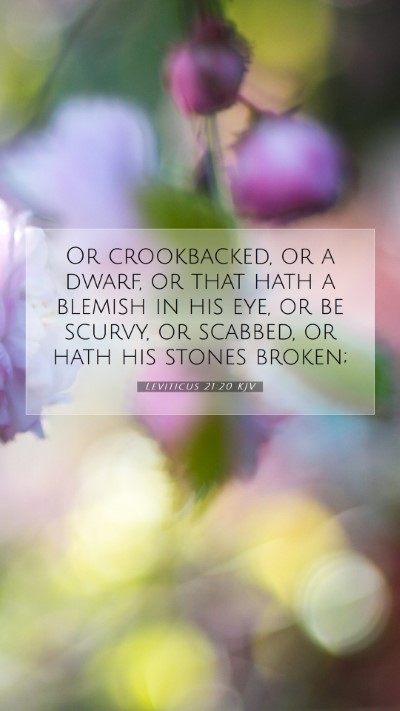Understanding Leviticus 21:20
Leviticus 21:20 states: "Or crookbacked, or a dwarf, or that hath a blemish in his eye, or be scurvy, or scabbed, or hath his stones broken."
This verse is part of a broader context which outlines the physical qualifications for priests serving in the tabernacle and later in the temple.
Understanding this verse involves looking at the cultural, spiritual, and functional roles of priests in ancient Israel.
Bible Verse Meanings
In the context of Bible verse meanings, this passage highlights the strict standards set by God for those who approach Him in worship.
It emphasizes purity and perfection as requisite for anyone serving in the sacred space of the tabernacle.
Bible Verse Explanations
The rationale behind such stringent requirements is multifaceted:
-
Holiness and Reverence: Priests were to exemplify holiness, as their role required a closer interaction with divine matters.
-
Symbolism of Perfection: The physical attributes of the priests symbolized spiritual completeness and the importance of bringing one's best before God.
-
Community Standards: Maintaining a standard among priests served as an example to the entire community of Israel in their worship practices.
Bible Verse Interpretations
Insight from commentaries such as Matthew Henry and Albert Barnes sheds light on the spiritual symbolism of these physical defects.
Matthew Henry points out that God’s requirement for an unblemished priest reflects the ultimate perfection found in Christ, the great High Priest who intercedes for humanity.
Adam Clarke elaborates that such measures were not merely arbitrary but designed for the instruction and guidance of the faithful in pursuing holiness and purity as a community.
Scripture Analysis
An in-depth Bible verse analysis of this section reveals a covenant relationship between God and Israel—a relationship where holiness must prevail.
The priests serve as intermediaries, and their physical condition serves as a reminder of the need for spiritual integrity.
Historical Context of Bible Verses
Understanding the historical context is crucial. The laws concerning the priests outlined in Leviticus were revolutionary at the time, establishing clear guidelines for worship and sacrificial rituals.
These regulations not only protected the sanctity of worship but also cultivated a sense of community and identity among the Israelites.
Application of Bible Verses to Daily Life
For modern believers, the application of Bible verses to daily life involves seeking ways to maintain spiritual purity, choosing to engage in practices that foster holiness,
and understanding the importance of integrity in both personal and communal worship.
Additional Insights
A deeper exploration of this verse encourages scripture meditation, as it resonates throughout the biblical narrative, illustrating themes of
sacredness, purity, and service to God. Let us not overlook how the physical standards of the Old Testament transition to the spiritual standards required of us today.
Bible Cross References
- Deuteronomy 23:1 - Addressing physical blemishes among priests.
- Hebrews 7:26 - Pointing to the perfect priesthood of Christ.
- 1 Peter 2:9 - Calling believers a royal priesthood.
Conclusion
In conclusion, Leviticus 21:20 serves as a profound reminder of the standards of holiness that God expects from those He chooses to serve Him.
The lessons drawn from this verse can stimulate Bible study groups, enrich online Bible study, and provide valuable Bible study materials for further reflection.


